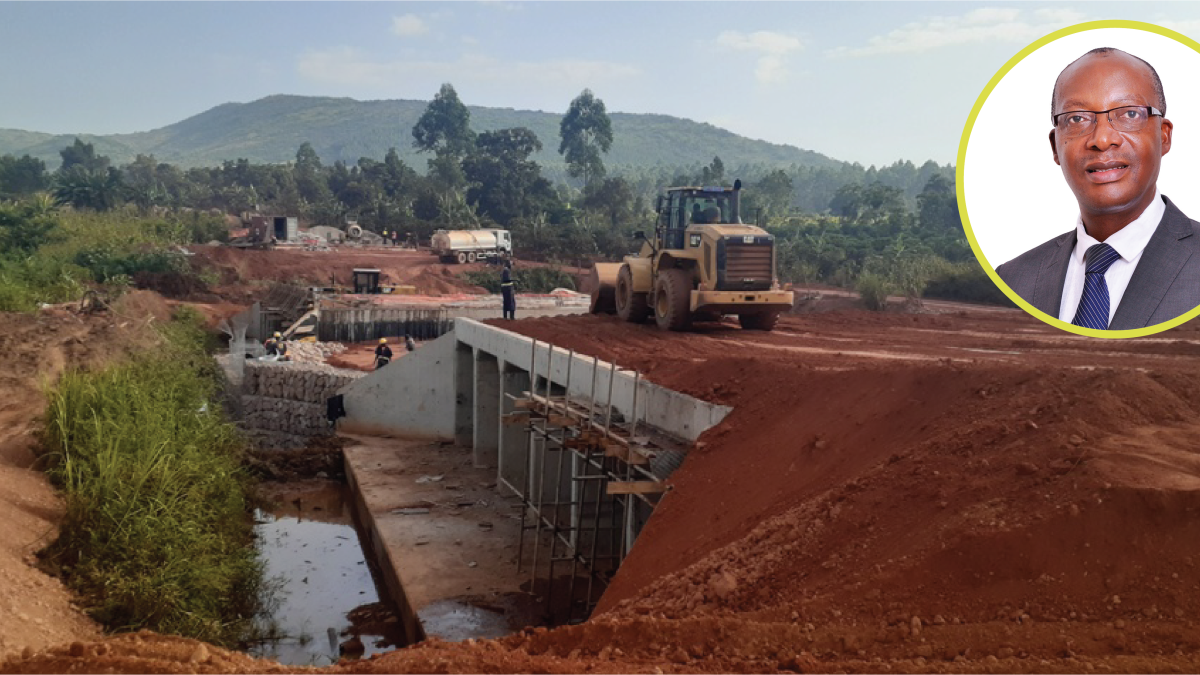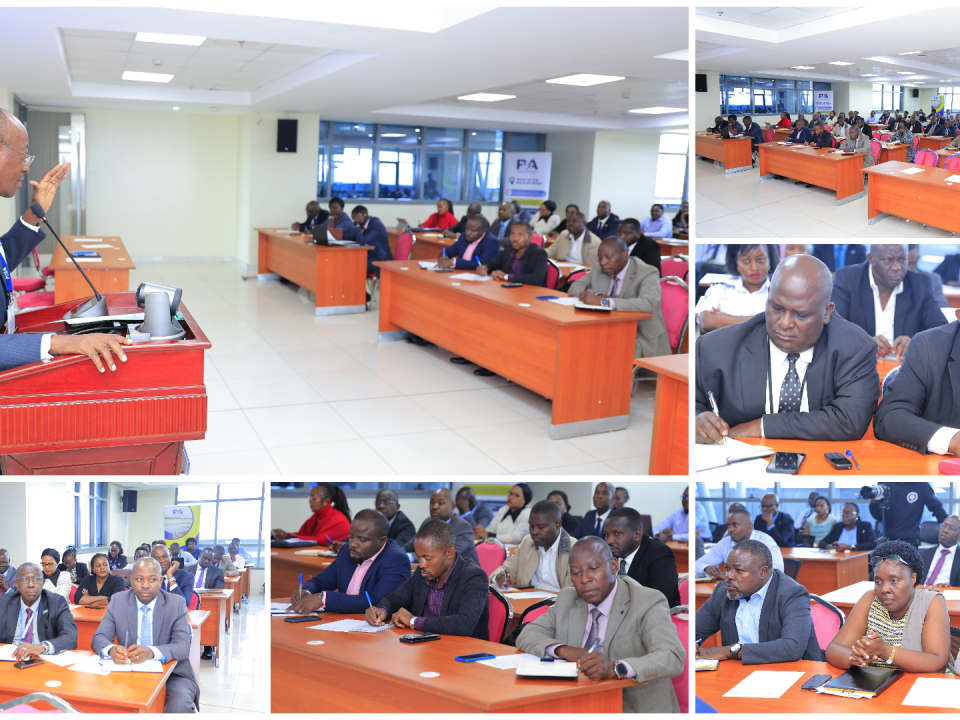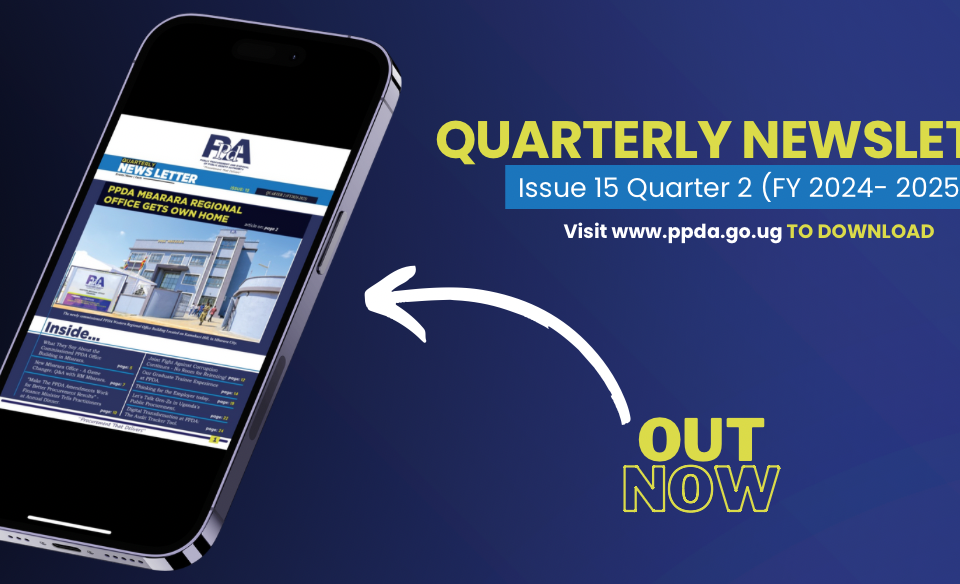How to Manage Environmental and Social Hazards in Public Procurement – By Benson Turamye

UGANDA HOSTS THE 14TH EAST AFRICAN PROCUREMENT FORUM
April 6, 2023
Completing government projects on time will spur national development – By Cris Magoba
July 27, 2023How to Manage Environmental and Social Hazards in Public Procurement.
By Benson Turamye
At the dawn of the 21st century, and a few decades earlier, advances in science and technology, were supposedly meant to usher in better standards of living and better livelihoods for mankind. This was because discoveries and inventions were expected to translate into mass production of goods and services and to make lives more comfortable for humanity.
While this was, and is still partially correct, it has dawned on us, and at times rather belatedly, that availability of goods and services will improve the lives of mankind, only, if the production is sustainable. In fact, mass production of goods and services can have adverse impacts on the planet and on humanity, and quite often, irreversibly. This is the lesson we have learnt in the public procurement arena.
The provision of goods and services by the government is not an end in itself. The process must be subjected to scrutiny to ensure that the citizens do not pay “other prices”, which, as we have established, are heavier than the nominal monies we expend in the procurement process. This scrutiny is what we refer to as Environment, Social and Health Safeguards (ESHS) in the public procurement process.
It is also against this background that the amendment of the Public Procurement and Disposal of Public Assets (PPDA) Act in 2021, provided for the ESHS, an area that was hitherto not considered important in public procurement.
Section 61A of the amended Act now clearly provides for sustainable procurement, and provides that, “a procuring and disposing entity shall, for each procurement, take into account environmental protection, social inclusion and stimulating innovation, as may be prescribed”.
And in line with its mandate, under Section 7 of the PPDA Act, the Authority had also earlier in 2019, revised the Standard Bidding Document (SBDs) for use by all Government Procuring and Disposing Entities (PDEs) for the procurement of works. The revision incorporates ESHS for the procurement of infrastructure projects like roads, water and sanitation systems, building works, and bridges.
With respect to environment safeguards, the bidding documents now provide for measures to mitigate the impact on habitats, land use and natural resources of the localities where the projects are being undertaken. Thus, PDEs are expected to work with contractors to identify and put in place measures to address issues of pollution (water, air, soil), plus maintenance of flora and fauna. They are also expected to protect natural resources such as wetlands, and to prudently manage waste disposal. Deviation from these requirements is a breach of the law by both the contractor and the accounting officer.
Social Safeguards are related to problems that influence a considerable number of individuals within a society where a project is to be undertaken. Owing to labour influx, there may be spread of communicable diseases, sexual harassment and exploitation, gender based violence, illicit behaviour and crime. These ills are prevalent in areas where mega projects, say road construction, or power dams are being undertaken, and many times by big multinational contractors. Contractors are supposed to put in place mechanisms to ensure that in the execution of works or delivery of goods and services, there are mechanisms for prevention of the aforementioned ills and there are response action plans, if and, when they occur.
Furthermore, there should also be measures to address socio-cultural safeguards which include management of social disruption, displacement of communities, preservation of historical sites and compensation for land or resettlement of project affected persons.
Other Socio-economic Safeguards include managing the impact on livelihoods and social services. Does the contractor use child labour? Do we have gender and social inclusion? Are the conditions of work fair? What about first aid, adequate usage of personal protective equipment, observation of hygiene, and training?
It should be noted, that consideration of ESHS is not only at the implementation phase of the projects. It should be embedded in the entire process, right from procurement planning to the handover and commissioning of the project and throughout the project life span.
At the planning stage, the PDEs ought to identify the appropriate location of works. The project should, for instance, not subject an area to soil erosion and landslides or contaminate water points for domestic use and for animals. The entity should also identify environment and social safeguards, for instance terracing or tree planting.
At the initiation of the procurement, the Bills of Quantities (BOQs) must have a costed Environment and Social Management Plan (ESMP). The Contracts Committee of a PDE is not expected to approve the procurement or disposal, which does not have mechanisms for managing ESHS issues. Where necessary, especially for mega projects, the Contracts Committee should have membership of ESHS specialists.
The bidders or contractors on their part are required to submit, an Environment and Social Management Plan (ESMP) as a mandatory requirement in the bidding process. And where necessary, the Bidder must indicate ESHS specialists as part of key personnel. The accounting officer may not sign a contract unless it appropriately provides for ESHS Safeguards.
In pursuance of the regulatory function, the PPDA will not hesitate to fault any Accounting Officer or contractor for failure to adhere to section 61A of the PPDA Act for the current generation and for posterity.
The writer is the Executive Director PPDA




